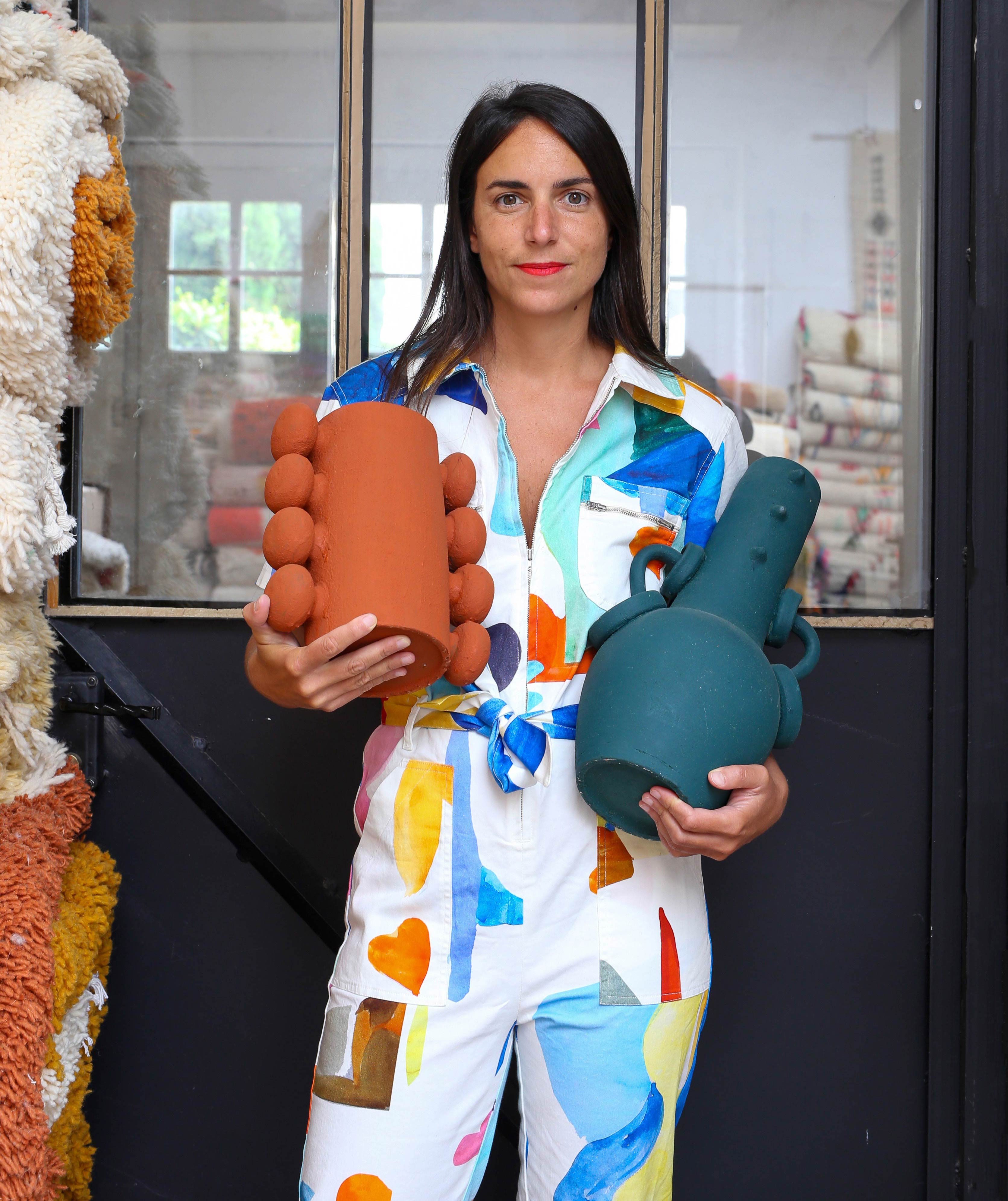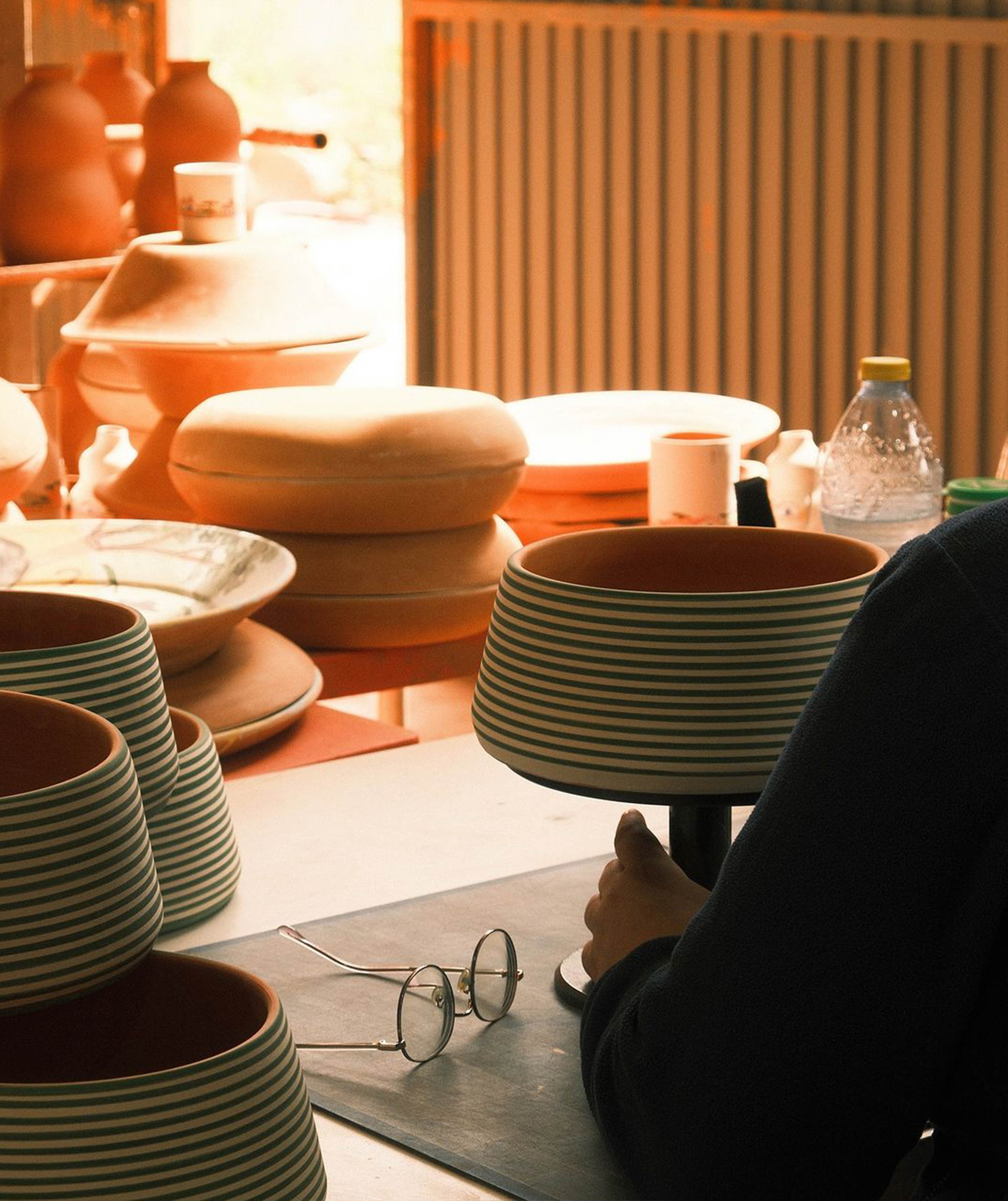
the fair trade dimension of them
Contributing in my own way to the preservation of ancestral know-how.
I share with you, through this article, what my relationship is with the artisans who weave the sublime Béni Ouarain rugs, Azilal rugs and other decorative objects that I unearth from all corners of the world for Them.
In creating Them, I started from a simple observation. Most shops that offer crafts from around the world, especially Berber rugs, whether colorful colorful Berber rugs or black and white black and white Berber rugs, are not rare. However? Shops that showcase artisans and their know-how are rare. For me, what is beautiful in a handmade object is the object itself but also, and above all, its story. I realized that shops did not talk about this story because they did not know it. Most buy from intermediaries. At the Maison et Objet fair or in the souks of Marrakech for Béni Ouarain rugs, Azilal rugs, Boucherouite rugs...
No contact with the artisan, therefore no way to really know the history of the creations. An observation that led to a desire... to go on an adventure, explore the world to meet the most talented artisans and especially learn from their knowledge. So off I went to the Berber mountains of Morocco. The Berber carpet weavers fascinated me. Their know-how is exceptional. Their creativity knows no bounds. The setting is magical. Other trips followed. Colombia. Indonesia. Jordan... Each trip brings new encounters. New treasures.


By eliminating intermediaries and being in direct contact with artisans, I was able to learn the wonderful stories behind Béni Ouarain rugs, Azilal rugs, ceramics,, cushions, and other items that I purchased, but not only that... What was also important to me in my "without intermediary" approach was to know exactly the value that goes back to the artisan. The Berber carpet weavers of Morocco, the dyers of Mali, the indigenous people of Colombia... all these artisans have gold in their hands, have real talent. It was therefore essential to me that their remuneration be monitored and fair. Buying from an intermediary does not allow for this control. Costs are often cut and artisans are not paid their fair value. At Them, on average, 50% of the sale price is paid to the artisan. A different way of operating to achieve my goal. Contributing in my own way to the preservation of ancestral know-how.
Marion, the founder.
Discover my selection of Berber rugs here.

the fair trade dimension of them

To contribute in my own way to the preservation of ancestral know-how.
I share with you, through this article, what my relationship is with the artisans who weave the sublime Béni Ouarain rugs, Azilal rugs and other decorative objects that I unearth from all corners of the world for Them.
In creating Them, I started from a simple observation. Most shops that offer crafts from around the world, especially Berber rugs, whether colorful colorful Berber rugs or black and white black and white Berber rugs, are not rare. However? Shops that showcase artisans and their know-how are rare. For me, what is beautiful in a handmade object is the object itself but also, and above all, its story. I realized that shops did not talk about this story because they did not know it. Most buy from intermediaries. At the Maison et Objet fair or in the souks of Marrakech for Béni Ouarain rugs, Azilal rugs, Boucherouite rugs...
No contact with the artisan, therefore no way to really know the history of the creations. An observation that led to a desire... to go on an adventure, explore the world to meet the most talented artisans and especially learn from their knowledge. So off I went to the Berber mountains of Morocco. The Berber carpet weavers fascinated me. Their know-how is exceptional. Their creativity knows no bounds. The setting is magical. Other trips followed. Colombia. Indonesia. Jordan... Each trip brings new encounters. New treasures.

By eliminating intermediaries and being in direct contact with artisans, I was able to learn the wonderful stories behind Béni Ouarain rugs, Azilal rugs, ceramics,, cushions, and other items that I purchased, but not only that... What was also important to me in my "without intermediary" approach was to know exactly the value that goes back to the artisan. The Berber carpet weavers of Morocco, the dyers of Mali, the indigenous people of Colombia... all these artisans have gold in their hands, have real talent. It was therefore essential to me that their remuneration be monitored and fair. Buying from an intermediary does not allow for this control. Costs are often cut and artisans are not paid their fair value. At Them, on average, 50% of the sale price is paid to the artisan. A different way of operating to achieve my goal. Contributing in my own way to the preservation of ancestral know-how.
Marion, the founder.
Discover my selection of Berber rugs here.



